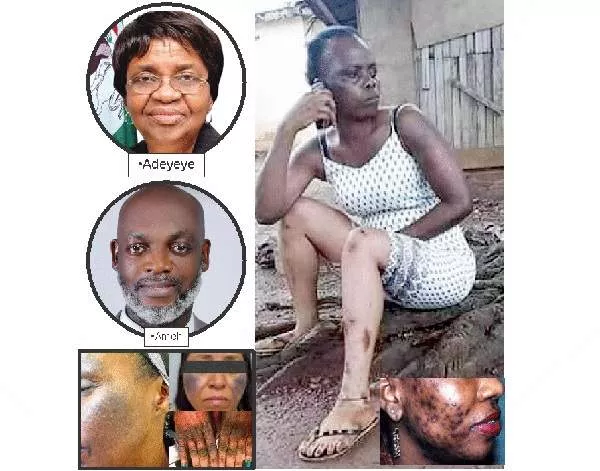
With an alarming number of self-professed skin experts and so-called 'organic' skin lightening products manufacturers and vendors springing up across Lagos and other major cities, as well as online, Nigerian women and men alike, seeking to 'improve' their skin and looks, may have been caught up in a silent epidemic that may well consume many and cause several to live the rest of their lives in regrets. Chinyere Okoroafor explores the trend, dangers as well as the role of the National Agency for Food and Drug Administration and Control (NAFDAC) in stemming the trend.
IT is no secret that most Nigerian women who go for skin-lightening, brightening or whitening products do so in pursuit of beauty. These days, users and product vendors use the trending word, 'glowing, perhaps to euphemise the act.' Women even patronise local manufacturers who tag it 'organic,' claiming they are formulated strictly with natural ingredients and, therefore, harmless.
However, skincare experts have insisted that most of the so-called 'organic' skincare formulas contain steroids and other undisclosed ingredients that breed faster results but shouldn't be on the skin.
It was this craze for 'glowing' that led 23-year-old Bimbo Adeoye (not her real name), an undergraduate of Caleb University, Lagos, to start using the so-called 'organic soap and cream'.
The final-year student, who spoke on condition of anonymity, said she embarked on the skin-lightening adventure because her skin was dull.
"My skin colour was what you would call brown skin but it wasn't popping. So I opted for a toned and even complexion for an appealing and fresh look; but it started brightening me the more and it is cool. I started using the organic set in my Year II in 2021. A friend of mine in another school, who was already using the skincare products, introduced me to her vendor, and since then I have maintained that particular set of skincare product. It's now over two years and my skin is popping. Am I not glowing?" She asked.
To answer that question, this reporter requested to see her previous pictures. The difference, as revealed by iPhone, was startling. Her current skin was bursting with greenish veins. Dark patches on her knuckles, knees and elbows contrasted boldly with other parts of her lightened body, while the redness on her face and neck gave an unattractive look, compared to her former natural hue.
In bewilderment, this reporter said: "You have changed a great deal."
With the smile of one who had accomplished something, Adeoye said 'thank you'.
Recounting how much she may have spent on the exercise, Adeoye said a set of skin care products which includes a 500ml size of 'Molato' soap (Molato stands for mixed breed from European and African parents), shower gel, body and face cream goes for N25.000 and lasts for two and half months.
And as far as she is concerned, there are no side effects - except for pigmentation at the initial stage and the current redness, which is caused by exposure to the sun.
"When I first started using the organic set, I once had a pigmentation, in which my face appeared to have double colour; but it has cleared out. It is the effect of the sun that caused the redness on my face now. It makes bathing with a sponge difficult because it hurts; so I just wash with my palm. Now, I have included a sunscreen serum routine to help protect me from sun exposure," Adeoye said.
Now she says there is no going back to depigmenting her skin for fear of returning to her dark old complexion and the consequent hyperpigmentation.
"The time it will take to transition back to my original complexion will take some time and my complexion will no longer be uniform. People will think I'm suffering from some disease; so it is better to continue. If I was in a country where it is cold, I wouldn't have this redness; however, the new serum I have now will clear it."
Another user, Mrs Ijeoma Adeyemi, a businesswoman at Balogun Market, Lagos Island, told this reporter she didn't have any business using lightening soap and cream because she was naturally fair in complexion.
This was in response to a polite enquiry about burnt patches on her face.
She had wanted to boost her complexion, which was beginning to darken due to constant exposure to the sun, she said.
However, what began as a maintenance procedure gave her more than she bargained for; and now there is no turning back.
"Because of the constant exposure to the sun, I thought that my complexion was beginning to darken, so I opted for the use of a lightning organic set. As the months went by, I noticed that I was lighter and I liked it; but as years also passed by, I began to have black patches and reddish burns. The more I experienced this, the more I bought some other lightening sets with promises they would correct the problem."
Adeyemi, whose cheek is heavy on ochronosis skin disorder, said she is embarrassed by how her face has turned out, but is at a loss as to what else to do, having spent so much to get her smooth, spotless face back.
"Sometimes, I would stop using the cream and it would begin to look awful, and then I'd go back to using them, hoping it would clear out one day.
There are many women - both young and aged like Adeoye and Adeyemi, who are hooked on skin-bleaching cosmetics. As much as they'd like to, they cannot stop, for fear of a reversal to their old dark skin and appearing 'ugly.'
Despite real risk of skin cancer and other effects, such as irreversible skin thinning, ochronosis among others, an increasing number of women and a few men are using non-approved NAFDAC skin-lightening products from unqualified self-manufacturers that contain harmful and banned substances such as mercury, steroids and hydroquinone.
Gloomy statistics
At a Media Sensitisation Workshop on Dangers of Bleaching Creams and Regulatory Control in February this year (2023) organised by the Association of Nigerian Health Journalists in Kano, the Director-General of NAFDAC, Prof Mojisola Adeyeye, speaking on the prevalence of skin bleaching in Nigeria, which she affirmed had reached an epidemic proportion, declared the practice a national emergency.
She said, "The WHO study in 2018 reveals that the use of skin bleaching cream is prevalent among 77 per cent of Nigerian women, which is the highest in Africa, compared to 59 per cent in Togo, 35 per cent in South Africa, and 27 per cent in Senegal.
"These scary statistics have shown that the menace of bleaching creams in Nigeria has become a national health emergency that requires a multi-faceted regulatory approach."
Literally, Adeyeye implied that the numerous skin-lightening products sold by unqualified self-manufacturers online and offline are wreaking havoc on the country's already overstretched health system.
According to research conducted in 2017 by the International Journal of Dermatology, 15 percent of the world's population used skin-whitening products.
Studies reveal that the practice started gaining popularity in many African countries in the 1950s.
How to start 'organic' skin lightening business
As the agency in charge of cosmetic product registration and regulation in Nigeria, NAFDAC's prohibition (1) A says that cosmetic products shall not be manufactured, imported, exported, advertised, sold, distributed or used in Nigeria unless it has been registered by the provisions of the agency regulations.
Unfortunately, this regulation is not obeyed in Nigeria. Anyone, it seems, can start the manufacturing of skin whitening soap and cream in commercial quantity, without a license from NAFDAC.
Across Lagos and other major cities in Nigeria, 'organic' cream and soap manufacturing is the booming hustle among young women who seem to have carved a niche for themselves, while many more are springing up.
According to a former vendor, Rukayat Mustapha, who said she quit the business because she couldn't continue deceiving users, a two-month tutorial was enough to learn about some of the ingredients as well as how to mix the soaps, creams and packaging.
"The only part that requires much work is the marketing aspect. Meanwhile, to become a self-manufacturer of lightening skincare, the individual would have to achieve a skin-lightening transformation themselves, as a testament to what they are offering. I had to stop because I found out that if I had to follow that route of increasing the volume of ingredients to make my soap and cream, I would be damaging my skin." she said.
In the course of this investigation, this reporter obtained a 42-page organic skincare training detailing an instruction manual for the production of 'organic' skin whitening creams in the Nigerian market.
The handout has a course outline, which includes different types of cosmetics, such as lightening oil, whitening face cleanser etc, introduction to skin types, equipment needed in making soap and cream and measuring cups and spoons among others.
When this reporter posed as an interested pupil to a female acquaintance, Chioma, who is into the business, she said, "It doesn't take time to learn it. Within one month, you're good. Just how to mix it, the recipe and all. There's money in it oh! All of the ingredients are in the market for you to buy."
When asked what ingredients are required, she smiled and said, "Don't worry, when you enter the business you'll know. There's something we add to the ingredients like oil, baby oil and others.
"All the materials are in the market, but you have to start using it yourself to be able to sell it."
With a trendy label name, Wendy (her other name), Chioma's shop in Ikotun, Lagos, parades such products as: 'Wendy's Glow Body Cream, Wendy's Body Polish Soap among others. There are, however, no mention of ingredients used on the packages, nor directions.
Meanwhile, NAFDAC law on Cosmetic Products Labelling Regulations, 2012, stipulates that all cosmetics ingredients, whether imported, exported, advertised, sold, distributed or used in Nigeria shall have a complete list of all the ingredients used in preparing the cosmetic product and listed on the outer label and inner label, where appropriate in decreasing order of predominance.
It further states that the declaration of ingredients should be prominent, readable and understood under normal conditions of purchase.
When asked if she doesn't have products for dark skin women, she said her Wendy's Glow Oil is good for black skin because it would give it a 'caramel skin tone'.
"Black people's skin tones to caramel skin. You won't understand until you learn it. Then you do your research. You have to use your senses, ideas and all. And it's not small money you will use to learn it.
"Initially, I paid 300k to learn it at my friend's place. Then I needed to upgrade, and I went to another person who collected 200k from me. I learnt how to treat dark knuckles. It's like a dark person who wants to be fair, they'll treat her skin. If you (a dark woman) want to be white; you'll first use lightening cream, then move to whitening cream. You'll have to be updating yourself with all the new recipes as time goes by.
Two types of skin bleaching
A skin-lightening cream retailer and mixer at Tejuosho Market, Lagos, who gave her name as Shola, told this reporter that the skin-lightening market had been segmented into two: organic and global brand products.
She said "Here in Tejuosho, you will get what you want based on your budget and the type of cream you want. It is a two-way market.
"When you tell us what you want, we will select the formulation of creams we will prepare for you. The higher you can afford, the less negative side effects you may have. Those who can't afford the expensive lighting products by big companies will settle for the cheaper bleaching mixed creams."
Notably, increasing westernization has increased the popularity of skin-lightening products steeply, breeding the emergence of skin-bleaching creams such as Perfect White, White Therapy, QEI +, 55H+, and Caro White among others.
In November 2018, an American celebrity, Angela Renée White, popularly known as Black Chyna came to Nigeria to launch and promote a bleaching product called "X Blac Chyna Diamond Illuminating and Lightening Cream, from a cosmetics company named Whitenicious with a high price tag of $250 for 100 grams - about 3.5 ounces.
One week enough for dark skin to turn white
Posing as an intending bride, who needed luxury Mulato soap to 'glow' on her wedding day, this reporter contacted Chy Skincare, through her business WhatsApp number found on her Facebook page, inquiring about her products.
Her chat reply went thus: "It depends on the shade of skin you want. If you are the type that has hard skin, if it takes others to start seeing the effect in one week, it might take you two weeks or more, unless if you are using it with our body scrub and probably body cream to be truthful."
The message on her page read: "Want to have glowing and beautiful skin? Chy Luxury Skincare is a brand for all people who want the best for their skin. Our products are formulated for all skin types and tones, with pure, natural & organic ingredients that are rich in vitamins, minerals, and nutrients..... "
For fast, effective transformation, she said "The cream is more effective than the soap. You will notice little changes, especially for a dark skin person. A light or fair-skinned person may see a faster result. For a dark person, my product is formulated to address skin issues, make it glow, and lighten it healthily," she added.
A total package of the bleaching set - of soap, cream, body oil and face cream, goes for N26.000, she said.
She also gave a guarantee: "No it will not damage your skin. ...It's like toner; when you use my product, you will see that it is effective not that it is harsh. ...You will see it on your skin gradually. By the time you finish using one cup, it will only give you a lighter shade."
Unlike her, Chioma, however, said her Wendy's products take three weeks of consistency to transform the skin.
"Three weeks maximum. It will start from the face first, before the whole body. A complete set of N25.000/should last 2-3 months. There are no after-effects. For black skin transitioning to white skin, the person only needs to know how to use it.
"If you are using whitening cream, you don't use it in the morning on your face because of the sun. It's the sun that causes redness. You can use it only at night. Then if you're going out in the morning, you apply your vitamin serum and sunscreen. For the body you can use your cream," Chioma said.
Some of the brightening, lightening or bleaching cream labels found online include: Half Cast Lotion, Hot Chocolate, Glupa Glupatone Original Carrot, Strong Whitening Uniform Lotion, Egyptian Glow Oil, Active Plus Moroccan Bath Whitening and Peeling Cream, Baby Glow Butter.
At the last count, this reporter identified 150 vendors on Facebook alone, operating without NAFDAC registration and approval, promising users Molato, Moroccan and several other skin-lightening types.
Things to know about the so-called 'organic' cosmetics
The Lagos International Trade Fair Complex, one of the major market hubs in Lagos is where to get all kinds of raw materials for making bleaching soaps, creams and oil.
Findings at the market located along the Lagos-Badagry Expressway revealed that there are two types of black soaps sold by the raw material dealers.
Posing as a naïve university girl who wanted to make her brightening skin cosmetics but scared of patronising vendors, this reporter approached a dealer who simply gave her name as Lovelyn, to learn about the ingredients.
She learned that black soaps with darker brown colours, which are imported from Ghana, are the original ones while the producers of the chemically made black soap use brown colouring to make it look like black soap, and it is acidic and harsh on the skin. It is called Caustic soda, and many end users are unaware of this secret.
"Ghana uses cocoa ponds to make their black soap but Nigeria has low cocoa production; so they don't make much of natural black soaps with cocoa ponds. To meet up with demand, Nigerians make caustic soda soap and add colour to it to give it a brown shade. Some end users don't know; all they know is that the soap is wrapped in brown paper just like the original black soap."
She added that the caustic soap "is cheaper than the original black soap."
With her permission, this reporter observed that the caustic soda black soap has some white powdery substance around the brown paper wrap, and when applied on the skin to feel the texture, it was hot, while the original black soap also in a brown paper wrap doesn't have any white powdery substance and does not hurt the skin but feels like a moisturiser.
Lovelyn explained that caustic soda soap is acidic and when lightening substances are added to it, it becomes even more acidic and would cause skin damage to the users.
On this occasion, a wrap of Ghana black soap went for N700 while the caustic soda type went for N350.
She also said the ingredients used were mostly imported.
Meanwhile, Loveyln who advised this reporter not to go for a sudden lightening of the skin because of its danger, offered her a product, which according to her, was better because it tones the skin gradually and it would take over a year before one would be noticeably fair.
However, this reporter insisted that she wanted an ingredient for skin bleaching, and reluctantly Lovelyn said, "I have bleaching powder, it is just written on it as bleaching powder. But there are other plant extracts of lightening ingredients such as Mulberry; Kojic acid is rice extract, and liquorice is obtained from sugarcane. For anti-ageing, I have sandalwood, turmeric, cinnamon, citric acid, orange peel, vitamin C, and different lightening oils etc."
Ojota Chemical Market is another huge market in Lagos where industrial chemicals for making cosmetics are sold.
The sought-after industrial chemicals are Barium Sulphate, Benzyl Alcohol, Borax, Dimethyl Formamide, and Ethyl Acetate, followed by cosmetics chemicals packaged in sacks and drums. These chemicals are largely imported from India and China. There are other smaller markets like the one in Idumota on Lagos, Island.
Over two days, this reporter witnessed dozens of skin care manufacturers' troop in to make purchases.
Some cosmetics chemicals are used for soaps, creams, shampoos, deodorants, perfumes and make-up. They include Paraffin Wax, Peppermint Oil Petroleum Jelly, and Kojic Acid among others. Some of these retailers sell formulations of base cream made from melting wax with oil and water. Others sell the raw chemicals used to mix the brew.
Nkechi Azuh, a shop owner in the market, showed her an already formulated chemical base from which local manufacturers advance into making soaps and creams. The shop, slightly bigger than a typical cold room, has rows of wooden shelves filled with assorted chemicals.
She explained that what often passes as organic creams is the addition of plant extracts to the formulated base creams with generous helpings of skin-lightening creams like Clobetasol Cream, Aneeza Gold or chemical compounds like hydroquinone, cysteamine or even corticosteroids.
What is organic skincare?
Speaking with The Nation, a Consultant Dermatologist with Dermahub and Aesthetics at the Jos University Teaching Hospital (JUTH), Dr. Apeh Ameh, said the so-called organic cosmetic products are gradually becoming a menace.
He explained that many of the self-manufacturers of bleaching products hide behind 'organic formulations' to deceive the public, adding that organic in the true sense of it means that the formulations are naturally occurring either from plant sources (Botanicals) or sources.
"Most people are impatient and want a quick fix. So, some unscrupulous elements in our society capitalise on this and put together mixtures containing hydroquinone and steroids and term them organic creams. I see patients daily who claim to use organic creams but have features of steroid abuse staring at everyone," Dr Ameh said.
The Oxford Dictionary defines 'organic' as something produced or practised without using artificial chemicals.
But according to Chioma, a vendor earlier cited in this piece, it is adding ingredients like turmeric powder, fresh yoghurt, aloe vera gel, milk or cucumber to the black soap or cream that makes it organic.
Bleaching skin and how it works
According to Dr Ameh, skin bleaching is a procedure whereby individuals lighten up darker areas of their skin or try to achieve paler skin tone, "and it involves the use of chemicals and natural products to decrease melanin production.
Melanin, he said, is secreted by cells in the skin known as melanocytes.
"The natural skin colour of a person is due to the pigment melanin produced by melanocytes in the skin and it protects the skin against the harmful effects of UV rays.
"But skin whitening creams slow the production of melanin in the skin's outer layer. This reduction in melanin production exposes the skin to the harmful effects of UV rays, which are especially important in Nigeria which has intense sunlight all year round.
Profiting from the so-called "organic' cosmetics
According to the former vendor, Mustapha, earlier mentioned, the business of manufacturing the so-called organic soaps and cream is very profitable.
She revealed that raw materials of ingredients worth N35,000 can produce soaps and creams worth over N100,000.
According to Statista, a German online platform that specialises in data gathering and visualisation, the revenue generated in the Nigerian beauty and personal care market is projected to reach US$8.36bn in 2023. It is also expected that the market will experience an annual growth rate of 13.96% (CAGR 2023-2028).
Breaking it down, Statista stated that the largest segment in this market is the personal care segment, which is estimated to have a market volume of US$3.74bn in 2023. When compared globally, the United States generates the most revenue in the beauty and personal care market, with an estimated revenue of US$98bn in 2023.
In terms of per capita revenue, Nigeria generates approximately US$37.35 per person in 2023.
Furthermore, online sales in the beauty and personal care market are expected to contribute 2.9% of the total revenue by 2023.
Findings also show that major skincare multinational brands try to cash in on the growing consumer base in Africa and Asia by linking lighter skin with perceptions of beauty and social mobility, particularly in their adverts.
These targeted adverts place much emphasis on global imagery such as Western-style clothes, images of international airports, and international beauty pageant contestants.
For example, a 2017 Nigerian Beiersdorf commercial featured a scene in which the black skin of Miss Nigeria, Omowunmi Akinnifesi, literally turned white as she applied the Nivea natural fairness moisturiser.
The dangers of bleaching the skin
According to Dr Ameh, skin bleaching agents cause significant short-term and long-term complications.
He said that the consequences of the short-term use include contact dermatitis, which induces some form of irritation upon application to the skin and could manifest as a stinging sensation, itching, erythema and sometimes swelling.
Another short-term consequence is Striae (stretch marks) and prominent blood vessels on the skin, which appear green.
He added that stretch marks are often seen as collateral damage from the use of steroids.
"Steroids degrade the collagen in the dermis of the skin, making the skin fragile and subsequently, the skin tears, giving rise to stretch marks."
As for visible blood vessels on the skin, Dr Ameh said it is due to skin atrophy in those who use steroids.
On the effect of long-term use, Dr Ameh listed complications such as Exogenous Ochronosis (EO), recurrent skin infections, abnormal nail discolouration, fishy body odour and mercury poisoning.
He explained EO as a dark/greenish patch or plaques on the forehead or sides of the face.
"This is seen in those who have used hydroquinone-based bleaching preparation for many years. This is due to the degradation of hydroquinone by sunlight depositing certain pigments deep within the skin. Most women attribute these skin changes to sunburn. Exogenous ochronosis also reflects dark knuckles on the hands and feet."
The consultant dermatologist added that recurrent skin infections are caused by bleaching formulations with steroids, which weakens the immune system and opens the gateway for pathogenic organisms to thrive.
"An emerging trend is the occurrence of fungal skin infections on unusual sites of the body e.g. Tinea versicolor. Once we see a client or patient with features of Tinea versicolor on the limbs, it's almost certain that he or she is using a skin-lightening agent."
On abnormal nail discolouration, Ameh said the situation is common with those who use hydroquinone-based bleaching preparations.
He said, "Half and half nail"- half of the nail is pink and the other half is white is a marker of hydroquinone abuse."
He also said those who use hydroquinone excessively and ingest certain foods such as beans, fish, and eggs experience a fishy body odour called trimethylaminuria.
Last on the list of long-term implications for skin bleaching are kidney disease, high blood pressure, fatigue, numbness, tremors, memory loss, sensitivity to light and irritability caused by mercury poisoning.
On whether an individual who has bleached for over 10 years can regain their former skin colour and texture if they stop bleaching, Ameh said the scenario is almost impossible because of the collateral damage the bleaching agents have caused on the skin. "For example Exogenous Ochronosis cannot be erased even with the use of appropriate LASER machines. You can only manage the complications."
Although there is no exact duration of time for constant bleaching to result in cancer because there has not been any study in Nigeria's environment to that effect, Ameh again said: "The longer you use bleaching agents, the more you are at risk of developing skin cancer."
He listed dangerous bleaching agents that find their way into many of the so-called organic creams and soaps as Mercury, Kojic acid, Hydroquinone and its derivatives such as Steroids, Arbutin, Azelaic acid, Niacinamide, Cysteine, Paper mulberry, Licorice extract, Glutathione, Vitamin C and Glutathione, the modern alternative to bleaching creams among others.
Findings showed that Glutathione injections, capsules and supplements are heavily marketed on Instagram with many women seen on video taking the drip.
For Dr Ameh, this new kid on the block is not without challenges, especially when taken intravenously or orally.
"Like all the others, there is the risk of sun sensitivity and skin cancer as well as unwanted side effects on the nervous system. Because it is a recent addition to the skin bleaching arsenal. The long-term effects of Glutathione have not been studied and may cause significant problems down the road," he said.
Why do people bleach their skin?
According to Dr Ameh, individuals, who bleach their skin, do so to make them feel more attractive and confident.
"They also bleach due to pressure from a spouse or partner; from peer pressure, employment and even from media influences on skin bleaching- who use light-skinned ladies for adverts when marketing cosmetics."
He also stated that skin bleaching is not recommended for any skin type, "However, there are medical indications for use of skin bleaching agents. This should be prescribed by a Dermatologist and such people monitored closely to avoid abuse of such skin bleaching agents," he said.
Addressing the menace
Early this year when Nigeria topped the chart as the highest user of skin bleaching cream in Africa, Prof. Adeyeye said the Federal Government, through the office of the Secretary to the Government, Boss Mustapha, according to Prof Adeyeye, wrote to NAFDAC a year before, seeking stringent measures against the menace.
But for the DG of NAFDAC, a sensitisation spree which was held across the six geo-political zones warning users about the danger of using bleaching cream was part of the stringent means the agency was taking to curb the menace.
"This sensitisation workshop is a training of trainers programme with the great expectation that participants will assume roles of champions in the vanguard of the campaign against the use of bleaching creams.
"I wish to assure you that NAFDAC will henceforth constantly engage the mass media as we strive to bring down to the grass levels the positive impact of our regulatory activities.
"Even though I have assigned some of my competent officers to carry out this training, it has become imperative for me to warn that some of the harmful effects of bleaching creams include cancer, damage to vital organs in the body, skin irritation and allergy, skin burn and rashes, wrinkles, premature ageing and prolonged healing of wounds," Prof Adeyeye said during the flag of the media sensitisation workshop held in Kano.
However, African countries like South Sudan, Rwanda, South Africa, Kenya, Ghana and Cameroonian have strictly banned skin whitening products outright; calling to question Nigeria's choice of mere warnings.
It will be recalled that NAFDAC in September last year during a brainstorming session at a two-day retreat hosted for its Top Management Committee (TMC) in Lagos, warned Nigerians to desist from using unauthorised cosmetics and dangerous chemicals for bleaching the skin to enhance their beauty.
At the brainstorming session, Adeyeye expressed shock at the proliferation of beauticians engaged in the formulation of unauthorised chemicals to apply them to their unsuspecting clients.
She noted that the majority of Spa outlets in the nation's cosmopolitan cities are culpable in the unhealthy practice of mixing chemicals and natural products like pawpaw, carrot, etc. to make creams, for the clients' use, adding that these are thereafter packaged, labelled, and sold online to clients.
She revealed that the Spa owners have gone further to influence some clinics with medical doctors joining to carry out these nefarious activities which have advanced to include injected substances vitamin C infusion and glutathione on clients.
In the same nexus, NAFDAC in December 2022 urged the media to champion the campaign against the skin bleaching pandemic by providing Nigerians with the right information to make the right decision about safeguarding their health.
Two months after the agency's round of sensitisation earlier this year against the use of bleaching cream, a young lady, Amaka Duru, who purchased a bleaching set of cosmetics from a popular skincare brand, Jenny's Glow, took to her TikTok account to call out the owner of the brand, Jennifer Igbinoba.
Duru made a video accusing the entrepreneur of selling fake products, which damaged her face, despite the huge sum, 200k, that she spent importing it from Italy.
It would be recalled that the call for NAFDAC to ban skin-bleaching creams in the country began gaining ground since the Nigerian Senate in 2021 mandated its Committee on Health to investigate the procedures for certification on quality and safety of Cosmetics and propose a way forward for accountability.
The motion, sponsored by Senator Oluremi Tinubu (Lagos Central), now First Lady of the Federal Republic of Nigeria, directed the leadership of NAFDAC to rise to its duty of regulating the importation, formulation and sale of cosmetics within Nigeria, citing the alarming proliferation of manufacturers.
"I am also worried that contrary to best practices, these products often do not provide a best before date. Concerned that the market for cosmetics is huge, with women appearing to be the primary target, be reminded that the regulation of any sector, for the protection of its people, is a duty of the Government," she reminded her colleagues.




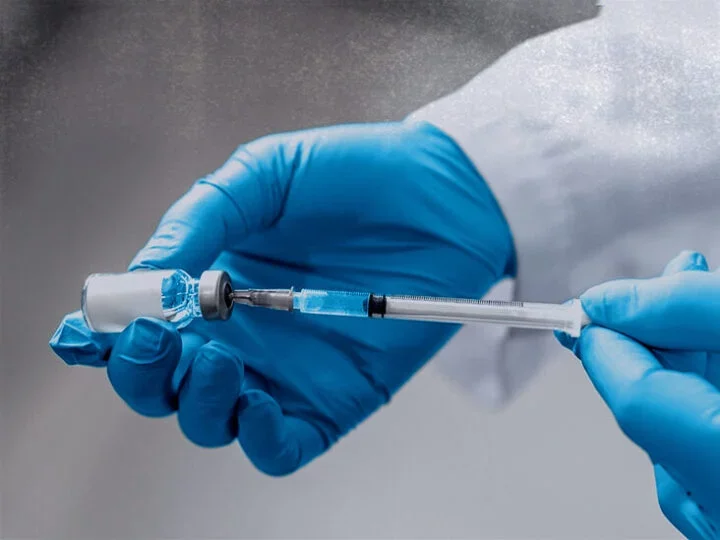
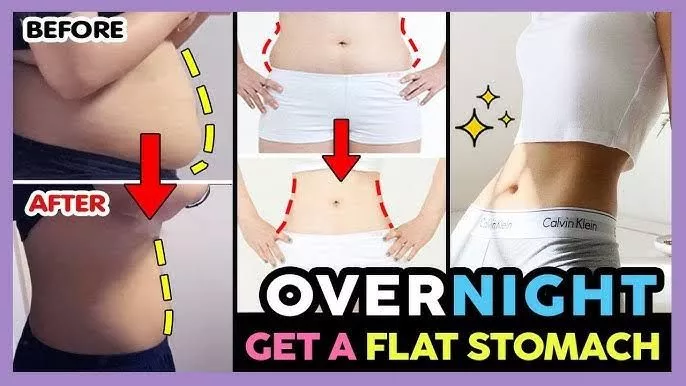
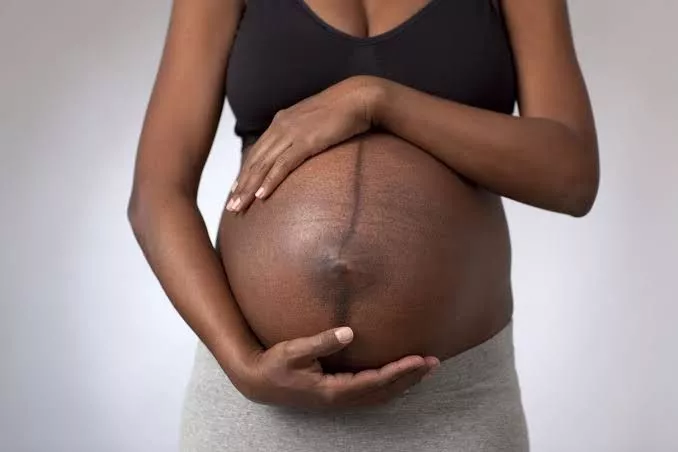

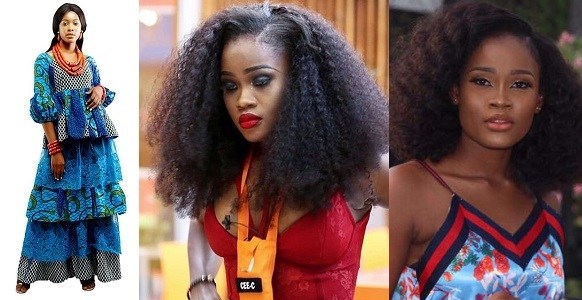






Comments